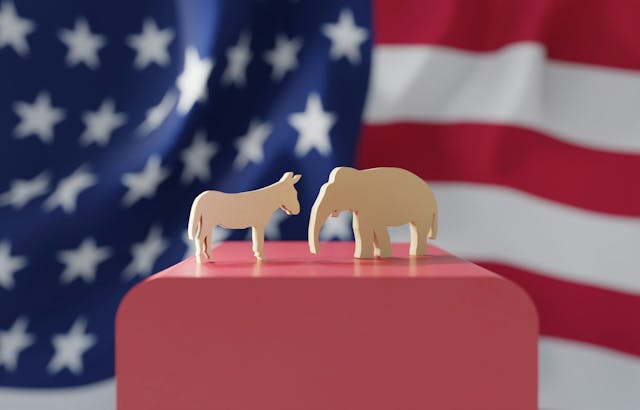Parties Gamble Big on Political Gridlock; Everyone Loses

"Gridlock" is a word Americans have gotten quite used to hearing in relation to politics over the last several years. Recent headlines show fears that gridlock will affect the stock market, make it harder to catch financial criminals, and shut down the government.
Partisan gridlock is the top reason Americans are critical of Congress, according to Gallup data published earlier this year, and the 113th Congress has a higher disapproval rating than any of its predecessors.
Despite rampant dissatisfaction and disapproval with the way congressional representatives are behaving, there is no evidence to suggest there will be change any time soon. As of July 12, only 15 bills had passed through Congress to reach President Obama's desk this year. By contrast, in 2005, George W. Bush signed 13 bills into law on July 12, 2005, alone.
So why are members of Congress sticking to their guns rather than learning to compromise? For starters, there might not be much financial motivation to get things done. Regardless of how many bills get passed, salaries for congressional leaders start at around $174,000 a year -- though some don't think that's high enough.
Additionally, factions within the main parties may be stymieing those who like to compromise. On issues where moderate Republicans might find common ground with Democrats, for instance, tea party representatives may draw a hard line.
But while gridlock may benefit those who wish to keep the status quo, it's only harmful in the long run, according to Paul Ferber, a professor of political science at the Rochester Institute of Technology.
"It would seem to increase voter distrust of both parties, and the political system in general," he said. "Creating more voter cynics hardly seems to benefit both parties."
Ferber went on to say that gridlock could benefit one party or the other for short periods of time, but not both parties at once.
"Gridlock does provide an opportunity for each party to try to convince the voters that the other party is responsible for it," he said. "The party that plays the blame game best might get an advantage in the next election."
If that's the strategy at work here, it seems to be backfiring. A recent poll from the University of Quinnipiac showed that 64 percent of Americans blame both parties for gridlock, while 23 percent blame the GOP and 10 percent blame Democrats.
But it's not clear whether some of the most stubborn representatives are even thinking that far ahead. Many instances of gridlock seem to come about simply because members of Congress put their ideological positions ahead of their job of running a functional government.
It's very difficult -- near impossible, even -- to have a productive discussion with someone who is firmly convinced that he or she is in the right, and that anyone who disagrees is wrong. When such a person is responsible for running a country, everyone in that country has to suffer for that bullheadedness.



